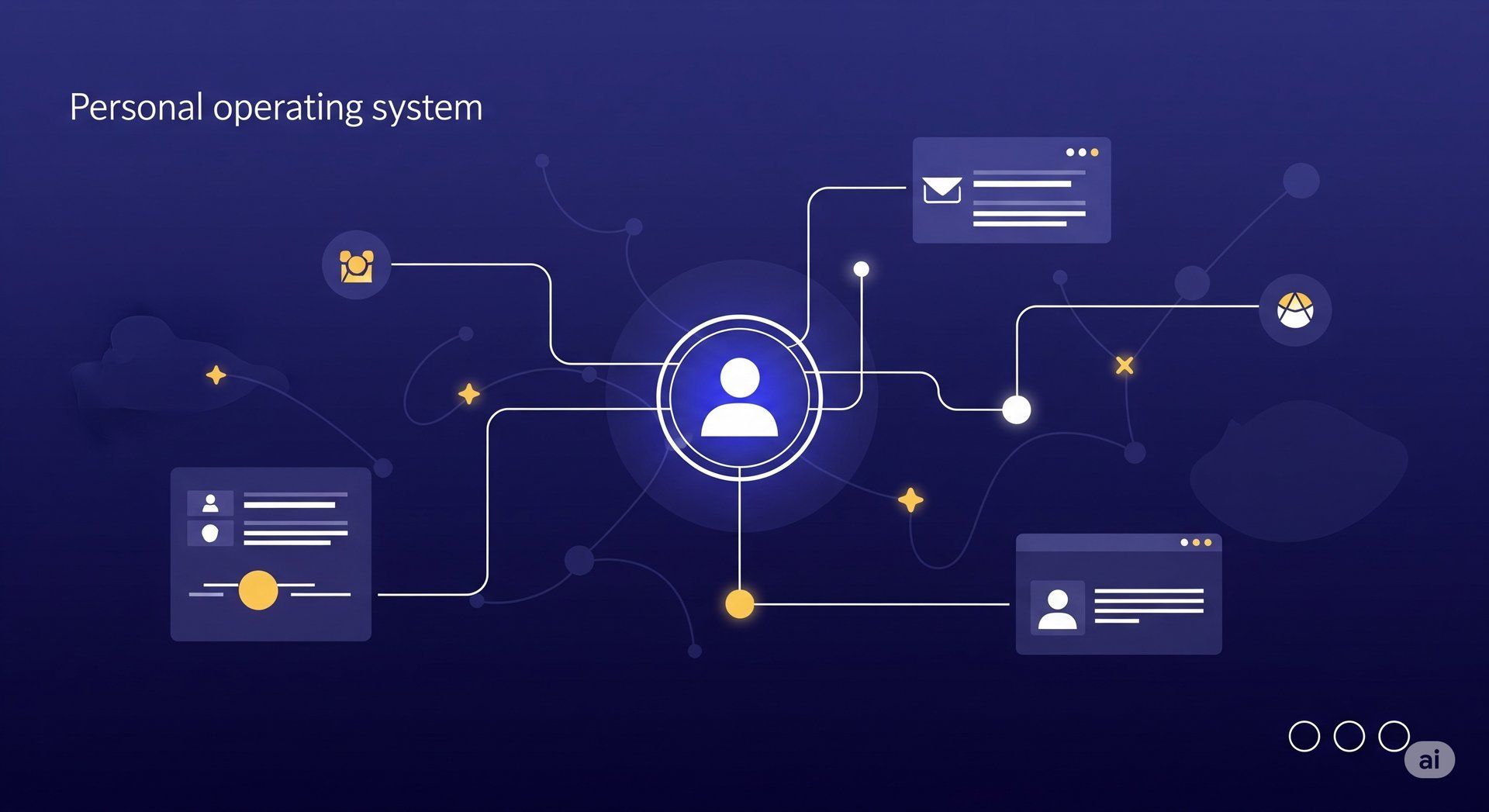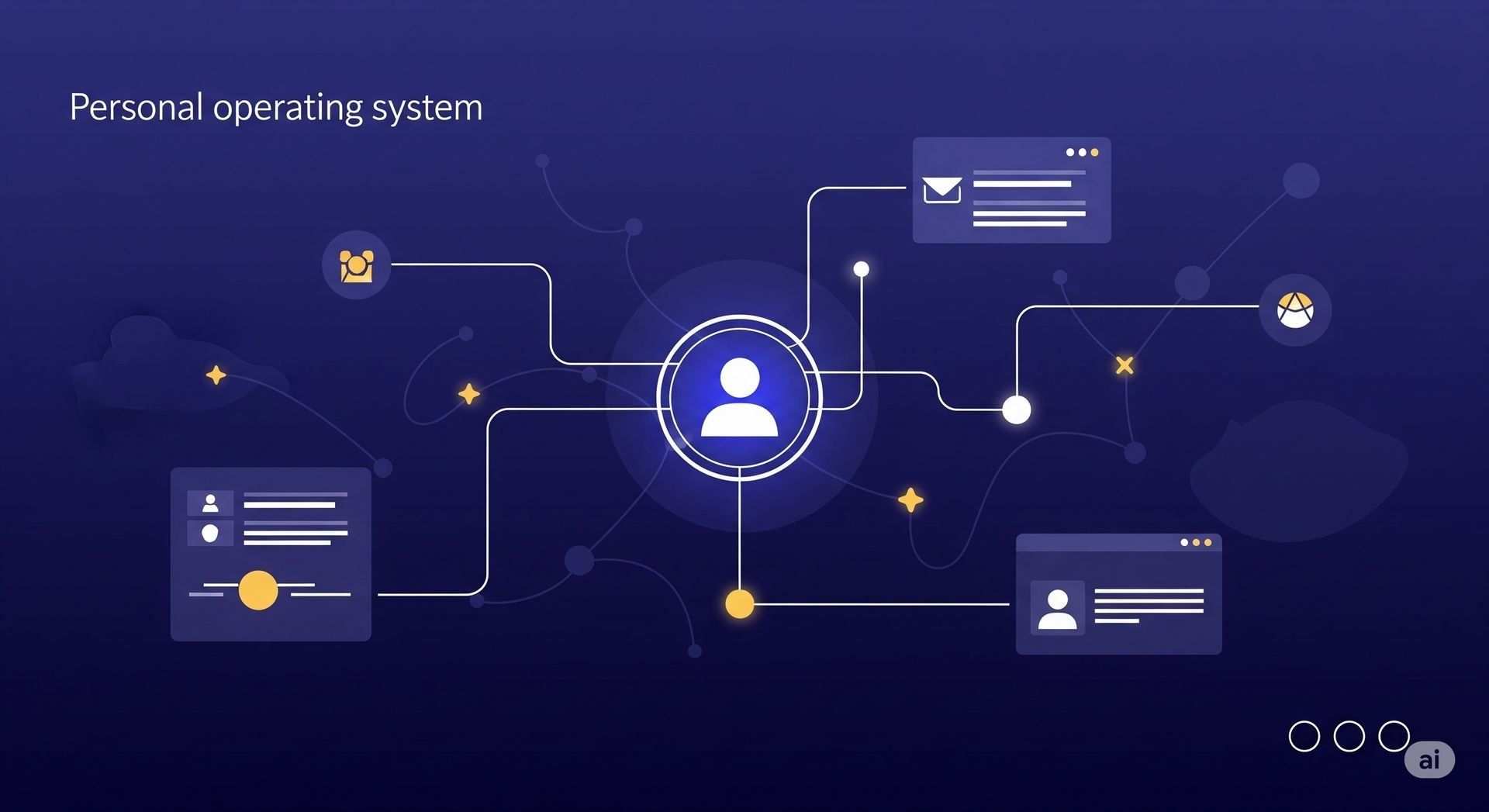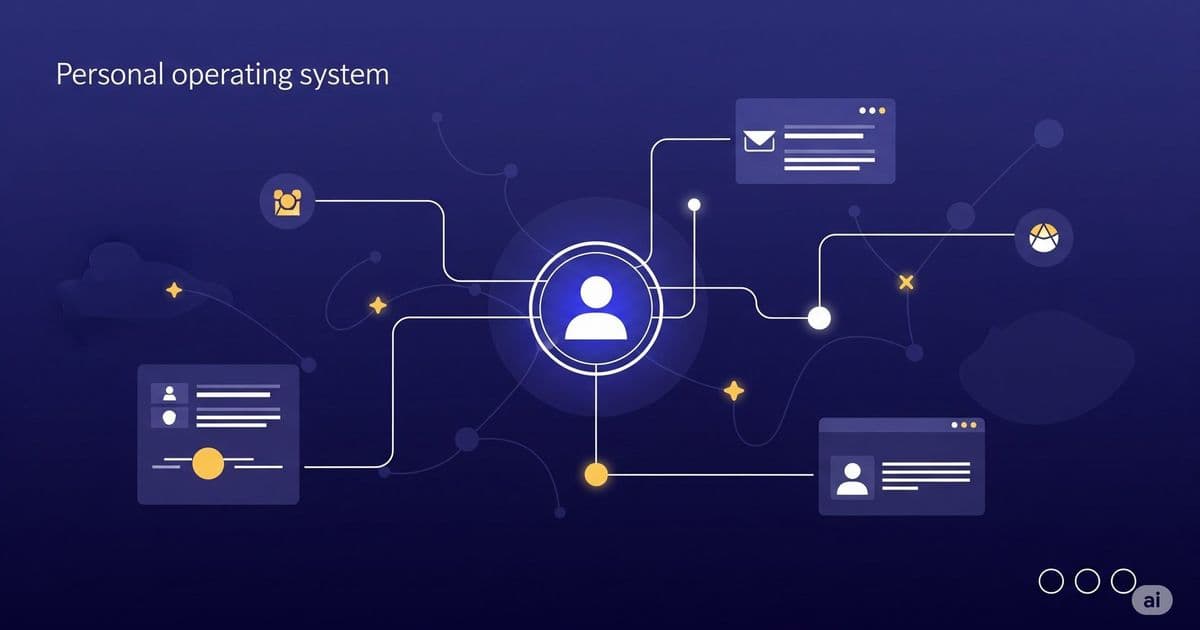Modern work's chaos demands more than scattered apps. Discover how building a deliberate Personal Operating System—integrating strategic tools, automation, and well-being practices—enables developers to thrive amid constant change and complexity.

Feeling overwhelmed by notification overload, tool sprawl, and the blurred lines between work and life? You're not alone. The relentless pace of technological change and evolving work paradigms has rendered traditional productivity methods obsolete. Developers and tech leaders aren't just juggling code—they're navigating a complex ecosystem of communication platforms, project trackers, learning resources, and personal commitments. The solution isn't another app, but a fundamental shift: building a Personal Operating System (POS).
As Kendrick Ledet outlines in The Next Shift, a POS isn't merely a collection of tools; it's a deliberately curated and integrated strategy for managing your entire professional and personal existence. It's your bespoke command center for a world defined by 'The Next Shift'—constant flux. This approach moves beyond simple task management to create a cohesive environment minimizing friction, maximizing focused output, and sustaining long-term well-being. The goal isn't just productivity; it's agency, clarity, and resilience.
Architecting Your Technical & Personal Stack
A robust POS functions like a well-designed tech stack—each component serves a specific purpose and integrates seamlessly with others. Here’s how to structure yours for next-wave effectiveness:
Strategic Work & Business Engine: This is your core productivity layer.
- Intelligent Task/Project Management: Move beyond basic lists. Tools like Motion (usemotion.com) leverage AI to dynamically prioritize tasks and automatically schedule them across calendars, adapting in real-time as priorities shift. "Motion resolves scheduling conflicts, ensuring you're always working on the highest-impact task," Ledet notes, highlighting its role in reducing cognitive load.
- No-Code/Low-Code Empowerment: Developers benefit immensely from platforms like Bubble (bubble.io). It enables rapid prototyping, internal tool creation, and workflow automation without diverting core dev resources, accelerating iteration for personal projects or team solutions.
- Asynchronous Communication Hubs: Reduce meeting fatigue. Loom (loom.com) exemplifies this, allowing quick screen/camera recordings for explanations or feedback, making complex communication faster and eliminating the need for synchronous calls.
General Tech for Cognitive Offload: Free mental bandwidth for deep work.
- Personal Knowledge Management (PKM): Your digital second brain. Obsidian (obsidian.md) shines here, using local Markdown files and bi-directional linking to create a powerful, customizable, and vendor-agnostic knowledge web. "Its plugin ecosystem lets you tailor it perfectly to your thinking style," emphasizing developer control over data and workflow.
- Life Automation: Zapier (zapier.com) remains the powerhouse, connecting thousands of apps to automate tedious cross-platform tasks (e.g., saving email attachments to cloud storage, syncing data). It acts as the nervous system connecting your digital life.
- Continuous Learning: Platforms like Coursera (coursera.org) provide structured, high-quality upskilling paths essential for staying relevant, offering university-backed certifications recognized in the tech industry.

- Well-being & Sustainability Layer: The non-negotiable foundation.
- Digital Well-being Tools: Combat distraction. Apps like Forest (forestapp.cc) use gamification (growing virtual trees during focus sessions) to encourage deep work, with the unique incentive of contributing to real-world reforestation.
- Mindfulness Integration: Calm (calm.com) offers guided meditations and renowned 'Sleep Stories,' directly addressing the critical, often neglected, component of rest for sustained cognitive performance.
- Habit & Goal Systems: Habitica (habitica.com) gamifies habit formation using RPG mechanics, turning personal growth into an engaging quest, providing external motivation often missing from static trackers.
The Continuous Integration of Self
Building your Personal OS isn't a weekend project; it's an ongoing practice of intentional curation and iteration. Start small: audit one area causing friction (e.g., notification overload, meeting sprawl, knowledge fragmentation). Experiment with one tool or practice from each layer, focusing on integration and reducing cognitive load. The key metric isn't raw output hours, but increased clarity, reduced friction, and enhanced resilience.
For developers and tech leaders, mastering this personal infrastructure is becoming as crucial as mastering a programming language. It’s the meta-skill that enables you to harness the relentless pace of technological change rather than be consumed by it. The most sophisticated systems we build should ultimately serve our own capacity to innovate and thrive. What component will you integrate into your OS this week to navigate the next shift with greater intention?

Comments
Please log in or register to join the discussion